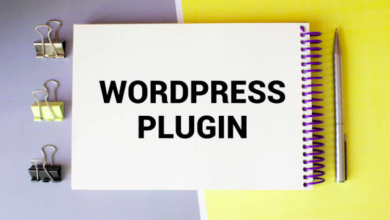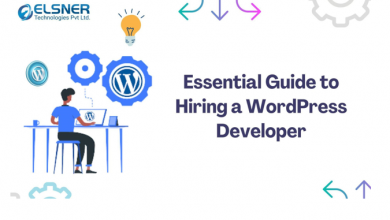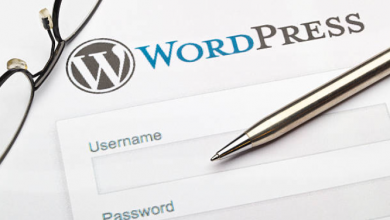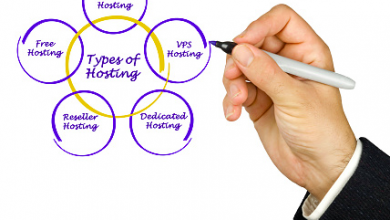7 Simple Steps to Follow to Create Your WordPress Website Hassle-Free
Well, WordPress is a website platform that needs no introduction for all those who even have a basic idea about web aspects. The convenience you get for managing all your blogs, articles, business websites, and personal websites is unmatchable if compared with other management tools or platforms.
In this guide, you will learn:
- Why WordPress is popular?
- Steps to create a WordPress website
- Why choose WordPress website development?
- Preparation for WordPress development
- How much does WordPress site development cost?
Let’s get started!
Popularity of WordPress
What started as a simple blog host platform; has now become one of the most popular Content Management Systems (CMS).
With the kind of effectiveness, ease of content management, SEO-friendliness, and fast deployment that WordPress provides, it is no surprise to note that approximately half of the internet is now powered by WordPress.
WordPress is completely free to some extent, open source, and comes with thousands of pre-built website designs and extensions. Another advantage of using it is that it is extremely flexible and works with almost every third-party tool and service available to website owners.
Read Also: 9 Tips for a Successful Company Website
How to Create a WordPress Website?
We shall now get to know the steps that can be used to make a WordPress Website-
Step 1: Define your site
Before you make any decision involving WordPress, you need to pick your niche. You need to clearly define the industry, category, and business model so that you can create a website that reflects the brand identity.
Make sure you pick a topic that genuinely interests you and your partners so it won’t feel like a chore to update your site now or months down the road.
Step 2: Choose a domain name
The domain name you choose should relate directly to the niche you have chosen in step 1, and it should also be a name that’s easy for users to remember. In this case, doing some keyword research can also be helpful.
Stuck on a particular name, but .com is taken? Try .net or .co or something else like that.
Step 3: Get web hosting
The next step is to find a reliable web host to handle your site. Pick a server and infrastructure that aligns with your needs, goals, and budget, and can provide you with high-end security as well as enhanced performance and scalability.
Step 4: Install WordPress
The risk of stating, that once you’ve finally found your web host and domain name, then it’s time to install WordPress and get up and running to follow the steps to utilize features and functions for creating the WordPress website.
While you can make use of a WordPress template builder to create one, a professional developer can help you create a custom-tailored and right website that includes the desired capabilities and functions.
Step 5: Choose your WordPress theme
Out of thousands of themes, you can choose one theme for your website.
Step 6: Complete your administrative pages
These pages include your contact page, about page, privacy, and disclaimer page. Get these things done and out of the way before you focus on adding content to your site.
Step 7: Publish your WordPress site
Once you get all the important administrative pages published, it’s time to start adding interesting content. Whatever your niche, you need to make sure you include plenty of quality content for your readers.
Make your pages visually rich, and further, make it a top priority to keep adding new content regularly. Well, these were the easiest yet most effective steps to create your website.
Why Choose WordPress for Website Development?
WordPress is a CMS created in 2003 by Matt Mullenweg, which allows users to create a website or blog right from scratch, or to revamp their existing site. It is available in both free and premium versions. The free version restricts the number of blogs and posts created per day while the premium version has additional capabilities.
We have curated the most salient features that make WordPress everyone’s ideal platform:
See Also: The 18 best SEO plugins for WordPress in 2024
In-built Themes and Plugins
Unlike HTML sites where you need to add complex codes to get a specific feature, WordPress comes with default themes and plugins for greater convenience.
By using a pre-built theme, you can build a website or blog easily. These themes can be customized and come with both free and paid options. You can utilize plugins to get fascinating features for your website.
Open-Source
WordPress is a popular open-source platform, making it useful for any project, from a personal blog to a business website. Although it is free to use and implement, you may need the assistance of a reliable website development company to give your website a more professional look.
Optimization-friendly
WordPress is an SEO-friendly and well-optimized CMS that boosts your site’s credibility and rankings on SERPs. It presents endless options to create structured headings and titles, upload images, create SEO-friendly permalinks, optimize content, and perform other on-page SEO practices.
Personalize your WordPress site According to Your Goals
The best part about WP is that you get flexible options to build custom websites with incredible features and functionalities. Premium themes are available to attract your target audience and add a pop of personalization to the overall site. You can also choose from many plugins to add more functions to your new or existing site.
Self-Upgrading Platform
Like other technological advancements, WP websites have significant features that tend to update constantly. WordPress comes with several upgrading options and newer themes are available from time to time. The same goes for plug-ins, keeping your website updated with the latest features and developments.
Website-friendly Features
WordPress comes equipped with built-in features and functions that enable users to perform various tasks easily. The platform allows you to update and handle website pages and blogs more effectively. You can revisit the site and make changes to images, content, and other information.
Large Community Support
WordPress has outstanding community support that provides guidance and contributes to the growth of the community and loyal users.
Users can easily find answers to common queries and get their issues resolved in a seamless possible manner. Besides WordPress, the internet is loaded with tons of blogs, articles, and other information resources to address your related queries.
Prepare for WordPress Maintenance
Your work doesn’t get completed once you are done with your site. After publishing content, you must ensure to keep up with site maintenance. Adding pages, downtimes due to server issues, and several other factors require you to implement WordPress maintenance steps timely and effective.
How Much Does WordPress Website Development Cost?
Most of us think making a WordPress Website would cost us huge amounts of money, but trust me
that’s not the case. A personal WordPress website generally can cost as low as $100 but the cost of a business website can vary from anywhere between $100 per year to as high as $30,000 per year. During the initial stage, everyone prefers to keep the range of their website below $100.
Factors that Determine WordPress Website Development Cost
Plug-ins
WordPress has over 40K plugins, so if you’re making a basic version of your website, you can incorporate plugins that are available for free. However, if you have a big budget and need extra functionalities, then go with premium versions of plug-ins. The more plug-ins you add, the higher will be the cost.
Themes
If you’re on a low budget or building a WP site just to gain online visibility, then you can opt for some free themes. On the contrary, if you need more features and want to keep your site secure, buy premium versions of free WP themes. A theme ranges from $10 to $200, depending on your requirements.
Hosting
There are many hosting providers with different website hosting charges. If you have a low budget, you can get a hosting plan of less than $8 per month. If you wish to spend more and require additional features, then you’d require a hosting plan worth $15-20.
Domain
If your hosting provider gives you a free domain alongside your hosting plan, go for it. Otherwise, you can get a paid domain. On average, it costs around $10-15 annually to hold a domain name.
Conclusion:
WordPress is the most sought-after CMS platform used for blogging sites, e-commerce stores, media galleries, web portals, and much more. As the digital landscape is booming, most businesses have started to understand the significance of having a robust online presence.
And now is the best time for you to develop a professional WordPress website. This makes the whole website design process less expensive than any other platform, with innovative visual elements, content creation, and endless options for themes and plugins.
If you wish to make the most of your WordPress website, consider working with experienced WordPress developers to create a unique and appealing platform. They will ensure keep your site is secure at its best with an SSL certificate and other functionality, as well as take proper care of WordPress website maintenance and exceptional customer experience.









